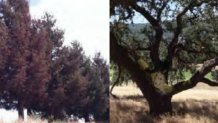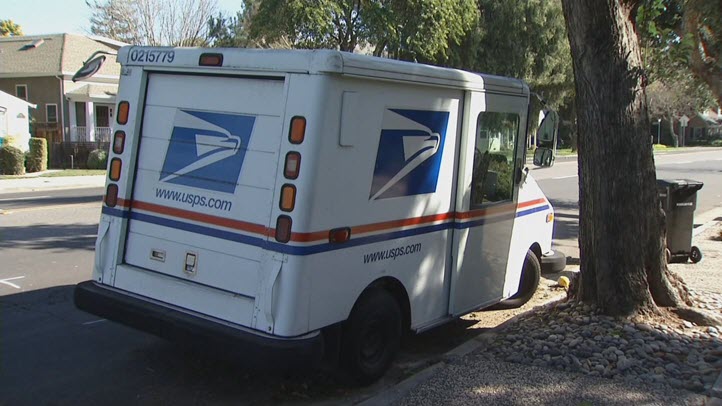As Mountain View warmly embraces high-tech giants such as Google and Microsoft, the Silicon Valley city is also poised to get rid of hundreds of other giants: Namely redwood trees, cedars and oaks.
NBC Bay Area compiled a list of the top five developments – in order of tree removal permits – and discovered that of those, four high-tech companies want to get rid of about 300 trees, even though they must replace what they cut down, if not add more.
Google seeks to take down the most: 160 trees in all, 100 of which are deemed "heritage" because of their size and type, to pave way for a uber-modern, two-level, 595,000-square-foot office building on 2000 North Shoreline Boulevard at the current GooglePlex site.
As defined in the city of Mountain View, a heritage tree must be an oak, cedar or redwood tree that stands at least 54 feet tall, and be 48 inches or more in circumference. To remove one needs a special permit from the city.
As of March 1, the other top four companies seeking heritage tree removal permits are:
- Microsoft hopes to remove 90 heritage trees at 1045 La Avenida Street, a permit that is also pending.
- El Camino Hospital seeks to remove 45 heritage trees.
- Intuit was approved to remove 40 heritage trees at 2600 Marine Way.
- Symantec was approved to remove 21 heritage trees at 575 E. Middlefield Road.
But Google has the most ambitious tree removal plan as it prepares to build its new futuristic digs, according to its original application filed with the city in May 2015. The next public study session on the most recent version of the "Charleston East" project will be held on March 29.
Local
To date, no one has formally complained about the project to the city clerk, but there have been some grumblings around town from landscapers and tree lovers about Google's overall expansion projects.
"Do not permit land developers and companies like Google to circumvent the heritage tree ordinances," a Mountain View resident wrote on a 2014 Community Tree Master Plan survey commissioned by the city. Any plan to cut down "mature redwoods to build a bike path is a disgrace."
Another person wrote: "Mountain View is consistently caving in to Google demands which sets the tone for all other developments."

Still, any developers who cut down trees must replace them.
And senior Mountain View city planner Stephanie Williams vowed on Tuesday that any the replacement trees will "far exceed" what Google cuts down. "This isn’t done in a vacuum," she said. "There’s no specific number. That all will be ironed around through the development review." She also said that 160 trees is not an alarming number to cut down in a project that large.
In its most updated February application to the city, Google said that while redwoods are important, many are not native to Mountain View and are not what birds want to live in. Google is offering to replace the redwoods with noninvasive, native and low-water use plants, mostly oaks, willows and cottonwood trees.
An arborist found that 23 percent on the project site are in declining health, or dead, and 53 percent of the trees are coastal redwoods. Google said in its application that the company hopes that once the heritage trees are gone, the company can create a "Green Loop," that boasts a bike and walking path in a "savanna-like habitat" and a "vegetated amphiteatre" under a "dense oak canvas."

Google's plan is actually OK with Catherine Martineau, executive director of the Palo Alto nonprofit, Canopy, which is dedicated to promoting healthy trees.
"It’s true, redwoods are not native to Mountain View," she said upon hearing the proposal for the first time on Tuesday. "They need a lot of water. Native trees are the way to go."
Still, she noted that any time a majestic, but thirsty, redwood is gone, it’s a sad day. And it takes years, she said, for small trees to grow into mature ones, though Google has said it will phase the removal in stages and not plant saplings.
"It’s always unfortunate when trees come down," Martineau said, "and they do provide habitat and they do provide ecosystem services. I hope they don’t cut every tree down at once because they take a long time to grow a tree to grow a tree of that stature. "



